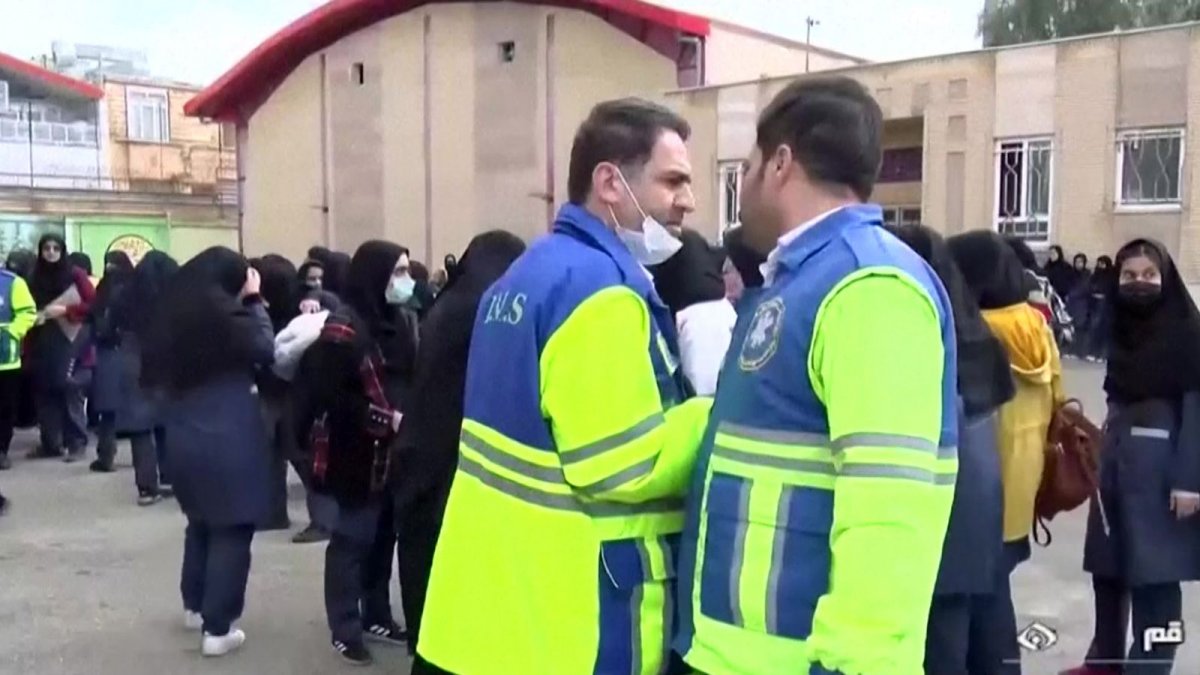Taliban Iran behind the poisoning of girls, part 2
According to Iran Gate, some analysts believe that a radical and powerful movement has emerged within the ruling regime, which has not yet had a clear appearance. These experts believe that this movement has entered the field for the first time with the poisoning of teenage girls and has initiated a widespread and coordinated project to intimidate society.
Iran Gate has investigated the case of poisoning of schoolgirls in a three-part dossier. The second part of this dossier focuses on tracing a radical and fundamentalist movement in Iran, which many believe can be attributed to the Taliban Iran. The footprint of this movement can also be seen in an interview with a cleric close to the reformists, although he was forced to deny his claims in the Shargh newspaper a few hours after the publication of this interview.
Now the question arises whether a mysterious and powerful movement has really been created within the Islamic Republic of Iran and whether the Iranian Taliban are responsible for the crimes that have occurred in girls’ schools in the past 6 months.
The interviews were immediately denied.
In the days when the poisoning of teenage girls in schools reached its peak, an interview was published in the Shargh newspaper that caused a lot of controversy. Mohammadtaghi Fazeli-Meybodi, a professor at the seminary and a member of the Teachers’ Assembly of the Qom Seminary, referred to a group called the Millenniumists in a conversation with Shargh and specifically attributed the poisoning of teenage girls to this movement. However, as mentioned, he immediately denied his claims in this interview, but this very action clearly shows his under pressure and not only did not conclude the issue, but also attracted more attention to this matter.
In a part of this conversation, Fazeli-Meybodi mentions that it is said that a group called the Millenniumists is responsible for these serial poisonings in schools. This group believes that girls should not study or at most, they should only study until the third grade. This movement is a religious and anti-modernism movement.
But the story didn’t end there, and one of the government officials made statements that reinforced the suspicion of deliberate poisoning of students. Younes Panahi, the Deputy of Research and Technology at the Ministry of Health, confirmed the deliberate poisoning of students during an official press conference. It was revealed multiple times after the poisoning incidents that some people wanted all schools, especially girls’ schools, to be closed.
Although Younes Panahi, like Fazel Meibodi, is forced to deny his statements made a day earlier in an interview with Fars News Agency, which he had raised in the presence of reporters and during an official press conference. In an interview with Fars, he tries to change his position and claims that incorrect interpretations of his previous statements about the deliberate poisoning incidents have been made, which have no basis in reality and he meant something else.
Who are the Millenniaists and what is Millennialism?
Millenarianism is a type of superstitious and fundamentalist mindset found in various religions, not limited to Islam and Shia Islam. It is primarily rooted in Christianity. This belief, which matured within Christianity, holds that God’s thousand-year rule on Earth will come to pass. Over time, this concept has spread to other religions and faiths. Millenarianism has gained many followers among Muslims, to the extent that Muslim millenarians believe there are direct references to millenarianism in a verse of the Quran.
However, upon closer examination of the details of this concept, it is clear that Shia Islam has a strong inclination to align with the principles and foundations of millenarianism. It should be noted that millenarians believe that the world as we know it will come to an end soon, and that humanity is seeking to eradicate injustice and corruption, aiming for universal justice and well-being under the leadership of a chosen individual who will bring about the salvation of mankind. Comparing these propositions with the beliefs of Shia Muslims regarding the appearance of Imam Mahdi, the twelfth Shia Imam, there is a strong correlation between the two.
Many historians also believe that the emergence of the Babi and then Baha’i sects has its roots in these beliefs, if we consider the claims of Ali Muhammad Bab. He claims to have had a close connection with the Imam and can be an intermediary between the Imam and the people. Of course, these mentioned sects have evolved in a different way and in some cases even became the foundation of reforms within the Iranian society. However, in general, such beliefs lead to the formation of extremist and fundamentalist religious movements.
Regarding this issue, experts believe that millenarianism has been revived in the poisoned atmosphere of the government in Iran, with a strong and extremist apocalyptic interpretation. At times, they have been supported by current Iranian politicians and rulers. However, the evidence obtained so far indicates the direct and unmediated involvement of this group in the serial poisoning of schoolgirls across the country.
The homework of crime from the hands of the Taliban
After Fazl Meibodi revealed the existence of this group in an interview mentioned earlier, many referred to this faction as the Taliban of Iran, attributing this to their fundamentalist Shia ideology. The reason for this is also the implementation of the project of poisoning schoolgirls in Afghanistan, which was organized by the Taliban in 2015.
According to statements and declarations by Taliban leaders, it can be said that the goal of this terrorist group was to prevent the sending of young girls to school and to carry out these criminal acts. Now, experts believe that extremist movements in Iran have also taken inspiration from the Taliban and, with the green light they have received, have targeted innocent students who expressed their dissatisfaction with the compulsory hijab in the most civil manner possible.
In the next part of this case, the mechanism of how the project of poisoning teenage girls in Iran was carried out and the goals of the millenarianists from this criminal act will be discussed.
A series of articles related to this issue has been published on Iran Gate, which can be accessed through the links below.
- مسموم سازی دانش آموزان کار کیست؟ / قسمت اول
- طالبان ایران؛ پشت پرده مسموم سازی دختران/قسمت دوم (در حال مطالعه این بخش هستید)
- بندبازی دولت رئیسی در پرونده مسمومیت های سریالی / قسمت سوم
English
View this article in English


